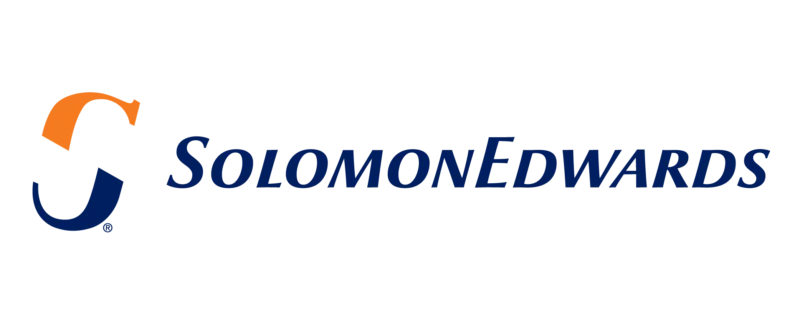In today’s corporate environment, information is no longer just a back-office function—it’s a strategic asset. A natural result of this shift is that the role of corporate knowledge professionals is evolving rapidly, expanding from traditional knowledge management and document control into powerful new domains like digital archiving, data analytics and AI-driven insights.
To stay competitive, organizations must embrace this transformation and actively support it. Encouraging knowledge teams to step into roles as digital archivists and data scientists is not just good practice—it’s a smart investment in the company’s bottom line.
The Corporate Data Explosion: A Strategic Challenge
Modern corporations are generating and consuming more data than ever before. Emails, reports, presentations, shared drives, cloud systems, messaging platforms, contracts, client interactions and internal research all contribute to a vast and complex information ecosystem.
Without the right professionals and tools to manage this data:
- Institutional knowledge becomes fragmented
- Valuable insights remain hidden
- Compliance risks increase
- Time and money are wasted on redundant work or data silos.
![]()
The need is clear
Corporations must preserve institutional memory, ensure information integrity, and extract insights that drive smarter business decisions.
Evolving Expectations for Knowledge Professionals
Historically, corporate knowledge professionals focused on classifying documents, organizing repositories, and ensuring access to shared content. Today, their role is much broader—and far more strategic. Modern knowledge teams are expected to:
- Manage digital preservation by safeguarding records and institutional memory in rapidly evolving tech environments.
- Support data governance by aligning information practices with legal, ethical and regulatory frameworks.
- Enable advanced analytics through preparing data for analysis and enabling visualization of trends for executive decision-making.
- Collaborate with AI systems—curating training datasets, validating outputs and maintaining human-centered oversight.
![]()
These responsibilities go well beyond records management—they are core to corporate resilience and agility.
Core Competencies: The Hidden Strength of Corporate Knowledge Teams
Knowledge professionals already possess powerful capabilities that map directly to modern digital roles. These include:
|
|
Essential for organizing unstructured data and improving searchability. |
|---|---|
|
|
Critical for ensuring compliance, protecting sensitive data and supporting auditability. |
Content curation |
Ensures continued relevance and context across evolving platforms. |
|
|
A core expectation in an era of increasing scrutiny around data usage and privacy. |
![]()
These competencies are the foundation for effective digital archiving, data science and AI alignment—and they’re already embedded in most corporate knowledge teams.
Practical Pathways for Upskilling and Reskilling
Forward-looking companies can help knowledge professionals expand their skills and evolve into digital leaders through:
|
|
|
|---|---|
|
|
|
|
|
|
![]()
Organizations that bridge the gap between information science and data science gain a major edge.
Corporate knowledge professionals understand the context, structure and meaning behind data in ways that technologists alone often do not. When given the tools to operate as digital stewards and data leaders, they become strategic partners in digital transformation, champions of ethical usage of data and AI, and custodians of the knowledge assets that fuel innovation and growth.
Future-Proofing the Corporate Knowledge Function
By empowering knowledge professionals to expand into digital archiving, analytics and AI, companies are investing in the future of their most important asset: their knowledge. This isn’t just an upgrade—it’s a reinvention.
In a competitive, fast-moving marketplace, the ability to preserve what matters, surface what’s valuable, and act on what’s known is the key to smarter business—and stronger outcomes.
Corporate knowledge teams aren’t just keeping the lights on anymore. They’re helping lead the way.
Whether you’re looking to expand your digital capabilities, leverage data more effectively, or ensure your corporate knowledge is safeguarded, get in touch if you’d like to discuss how our team can help.
Bottom-Line Benefits |
|---|
|
|
Better classification, access control and retention policies lower legal, compliance and reputational risks. |
|---|
|
|
Reduces time lost to duplicated work, scattered files and undocumented processes. |
|---|
|
|
When knowledge professionals collaborate on AI and analytics, they help unlock patterns and trends that drive new product ideas, customer insights, and operational improvements. |
|---|
|
|
Preserving institutional know-how reduces vulnerability to turnover and enables smoother onboarding and succession planning. |
|---|
About the Author
With nearly 30 years of experience in technology, operations and data-driven transformation, Rob has held key executive positions across several organizations, where he played a pivotal role in scaling operations, integrating advanced data solutions and optimizing service delivery. His expertise spans large-scale initiatives in information governance, workflow automation and technology integration across industries, including legal, financial services and professional services. A recognized thought leader in data sciences and business intelligence, Rob often addresses and speaks on the intersection of technology and information strategy.
To learn more, connect with Rob at rcorrao@solomonedwards.com.





